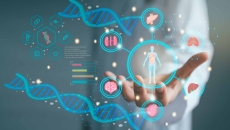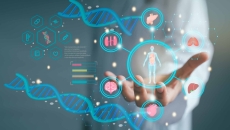EHR
During an EHR transition, it is essential to keep the patient at the center of the transition, ensuring collaboration with clinicians and patients is done early, says Epic Emeritus CIO Kelli Garrison, founder and CEO of Verdant Consulting.
Artificial intelligence gives Cedars-Sinai's clinicians EHR-supported diagnoses and treatment plan recommendations after patients complete virtual urgent care clinic intake questions in a structured chat.
HIMSS25
John Orosco, Red Rover Health's CEO, says the company's API-based platform that integrates digital tools directly into EHRs can help streamline operations and reduce clinician burnout.
The AI-powered software allows clinicians to ask questions about a patient's medical records.
HIMSS25
Independent accreditation is essential to ensure that health technology and health organizations are compliant with HIPAA, NIST and other standards, says Kathryn Ayers Wickenhauser, DirectTrust's chief strategy officer.
HIMSS25
Jackie Rice, VP and chief information officer at Frederick Health, says adding pharmacogenetic data to the health system's EHR enables alerts that advise clinicians on how a patient’s genes can affect drug response.
HIMSS25
While they were originally tools for administrative documentation, EHRs now prioritize streamlining clinicians' workflows and enhancing care delivery, says Sandra Johnson, SVP of client services at CliniComp.
HIMSS25
According to Office Practicum's Dr. Rich Szabo and Chris Gibson, the company's EHR provides pediatricians with a complete view of patient data so they can more easily manage the immunization process at the point of care.
MobiHealthNews examines the impact of automated dispensing cabinets, robotic surgery, AI in radiology and smart screens on patients' receiving and physicians' delivering care.
MobiHealthNews examines several technological innovations that have impacted patient safety and changed the way healthcare practitioners work.









